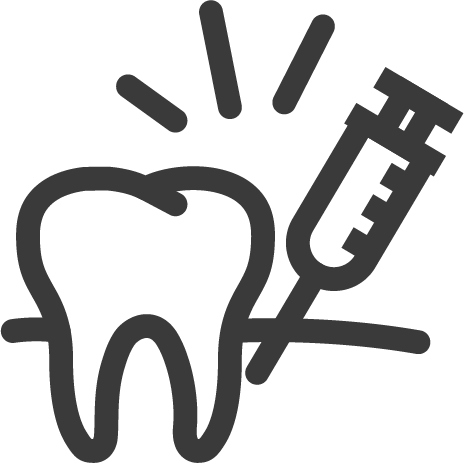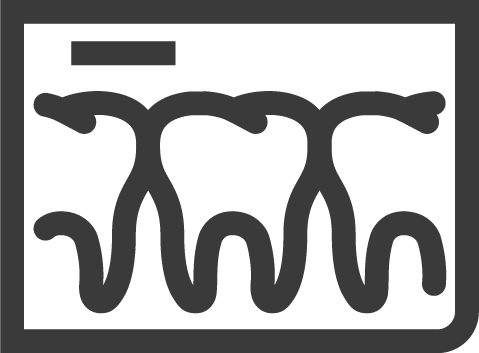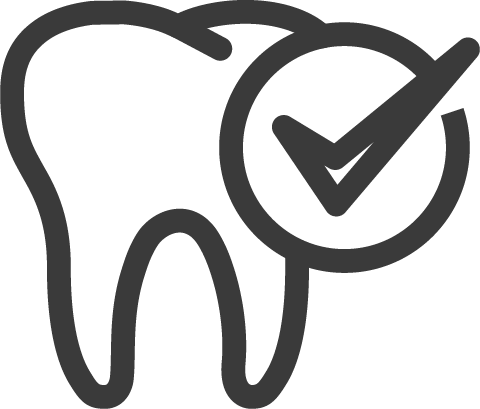
A root canal is oftentimes the best way to save a tooth. Removing and replacing a tooth requires more complex dental work which can cost a lot of money.

During your consultation, your Ranch Mission Viejo dentist will take x-rays of your teeth to check for the location of decay.

You will be given numbing cream and local anesthesia so you don’t feel any pain during the procedure.

An opening will be made into the affected tooth by drilling into the top of the tooth. The pulp will then be removed and all of the canals inside the tooth will be thoroughly cleaned.

A filling called gutta-percha closes up the roots inside the tooth that had been opened and a sealant is used to fill the opening at the top of the tooth. A crown may end up being placed on top of the tooth.
Anterior root canals are performed on your anterior, or front, teeth. They are considered to be more difficult and complex than posterior (rear or molar) root canals. This is because the front teeth are smaller, and do not have a large chewing surface.
In the standard posterior root canal procedure, an opening can be created on the top, or crown, of a molar or premolar. This is not possible with an anterior tooth, so an opening must be created in the lingual surface of the tooth — the side that faces the tongue. In addition, it can be more difficult to restore anterior teeth with a crown or a filling, since the surface of the tooth is much smaller.
Posterior root canals are a more common treatment. The posterior teeth (molars and premolars) become infected more commonly than the front teeth because they have deeper pits, grooves, and fissures that can harbor cavity-causing bacteria and plaque.
In a posterior root canal, an opening is made in the top chewing surface of the tooth, which provides easy access to the interior pulp and root canals. Once the procedure is complete, the tooth is restored with either a filling or a crown, depending on which will best support the remaining tooth structure.
Pulpotomies are often called “baby root canals,” because this pediatric treatment is used to treat infected baby teeth. The process is quite similar to that of a root canal in an adult tooth.
Your child’s dentist will begin by cleaning and numbing your child’s mouth, removing decayed enamel, and creating an opening in your child’s tooth to access the infected pulp. Once the infection is cleared from the roots, the interior of the tooth is cleaned and sanitized.
After the area is disinfected, a special healing dressing will be applied to the remaining pulp. This dressing will encourage the pulp to heal, which will keep the baby tooth alive and healthy until it falls out as part of your child’s natural oral development.
There are various reasons why someone would need a root canal, including extensive tooth decay, infection, issues from a previous filling, or a crack in the tooth. The best way to know if you need a root canal is to visit the dentist so they can perform an oral exam. However, the following symptoms could be signs that a root canal needs to be performed:
It may take several appointments to complete the entire root canal procedure, usually taking about 3 appointments in intervals of 1-2 weeks between each appointment. During your first two visits, the pulpectomy and cleaning of the canals will be performed. If you are located in Ladera Ranch, San Clemente, and San Juan Capistrano, please give us a call to address your tooth pain with root canal treatment.
This should help alleviate the pain and swelling that patients typically experience when they have damaged teeth. The final appointment is when the tooth will be filled and sealed so bacteria can’t penetrate the inside of the tooth. An additional crown may be placed over the affected tooth if it is in a weakened state to assist with chewing.

Dental patients often need root canals even if they aren’t experiencing any tooth pain. The tooth’s pulp can still be infected or inflamed.
You will need root canal therapy if your tooth becomes infected. This happens one of two ways:
A serious cavity can eat away at the outer layers of your enamel and dentin. Eventually, this decay will expose the vulnerable pulp (the material that keeps your tooth alive) to bacteria that causes the infection. Dental trauma can crack the enamel and dentin, exposing the nerve and blood vessel-filled pulp to oral bacteria.
Regardless of how the infection occurs, the pulp will begin to decay and die once it becomes infected. When this happens, you’ll experience symptoms like a toothache, gum inflammation near the tooth, and tooth sensitivity.
No. It’s a common myth that root canal therapy hurts when, in fact, it is the toothache caused by the infection that is painful. In modern dentistry, there’s no need for pain. Root canal therapy is similar to receiving a dental filling.
Your mouth will be completely numb during the procedure, and you can even be sedated at our office, if you wish. Getting a root canal is the best way to rid yourself of the pain and discomfort of an infected tooth, which can be very severe.
In rare cases, root canal treatment can fail. If not all of the decayed material and bacteria are removed, the tooth infection may come back. If this happens, you’ll come back to our office for endodontic retreatment. Your dentist in Ranch Mission Viejo will re-open your tooth and repeat the root canal process, and ensure that the infection is completely removed.
Not always. Crowns are usually the best way to protect your tooth after root canal therapy, and are recommended for posterior teeth (molars and premolars). However, fillings are sometimes used to fill front teeth. Your dentist in Rancho Mission Viejo, CA will let you know if you need a crown or a filling after your root canal appointment.
Root canal therapy is usually covered by the vast majority of dental insurance policies to some degree. However, we do recommend that you consult with your insurance provider so that you understand your benefits and which treatments are covered.

Getting root canal therapy can save you from more invasive procedures, like a tooth extraction.